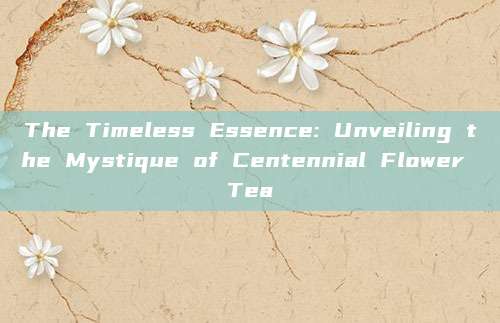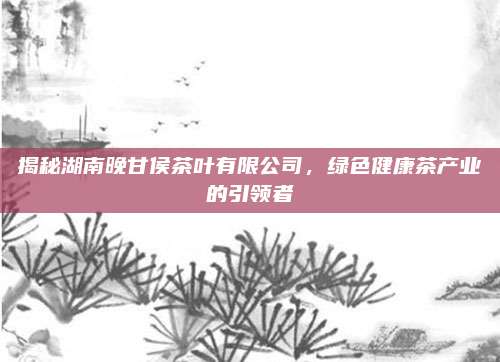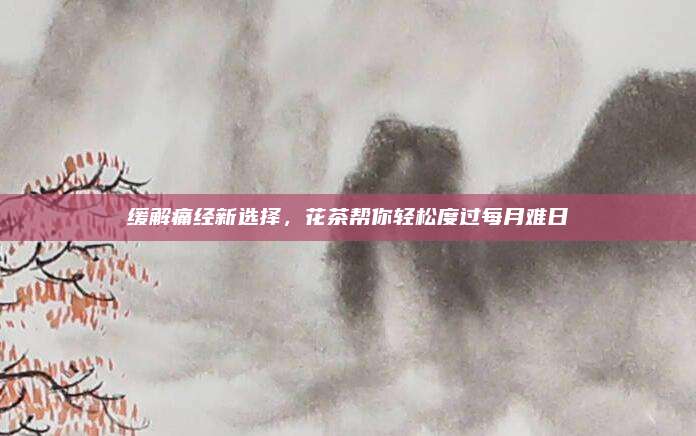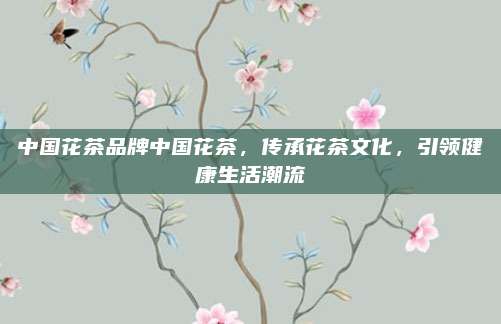Introduction:
Steeped in history and rich in cultural significance, Centennial Flower Tea is a treasure trove of traditional Chinese beverage. As an indispensable part of the nation's heritage, Centennial Flower Tea not only symbolizes a connection to the past but also embodies the essence of Chinese aesthetics and values. In this article, we will explore the fascinating world of Centennial Flower Tea, its history, health benefits, and cultural significance.

The Ancient Roots of Centennial Flower Tea:
Centennial Flower Tea dates back to the Tang Dynasty (618-907 AD) when it was introduced to the royal courts. The popularity of this unique beverage rapidly spread throughout the empire, becoming a status symbol among the nobility. According to historical records, the earliest Centennial Flower Tea was made from the flowers of the osmanthus tree, a native Chinese plant known for its aromatic and medicinal properties.
Health Benefits of Centennial Flower Tea:
Centennial Flower Tea is renowned for its numerous health benefits. Studies have shown that it contains a variety of antioxidants and bioactive compounds, which help improve immunity, promote digestion, and alleviate stress. Moreover, Centennial Flower Tea is believed to have anti-inflammatory, anti-aging, and weight-loss properties. A 2019 report published by the Chinese Academy of Sciences highlighted the importance of Centennial Flower Tea in promoting a healthy lifestyle.
Cultural Significance of Centennial Flower Tea:
Centennial Flower Tea holds immense cultural significance in Chinese society. It is not merely a beverage but a symbol of elegance, harmony, and respect. During the traditional tea ceremony, Centennial Flower Tea is used to express gratitude, foster friendships, and celebrate special occasions. The tea's aroma, color, and flavor are all meticulously considered, reflecting the beauty and grace of traditional Chinese culture.
Popular Varieties of Centennial Flower Tea:
Centennial Flower Tea comes in various varieties, each with its unique flavor and aroma. Some of the most popular types include:
1、Osmanthus Flower Tea: Made from the delicate flowers of the osmanthus tree, this tea has a sweet, fruity taste and is perfect for soothing the palate.
2、Chrysanthemum Flower Tea: With a mild, floral aroma and taste, Chrysanthemum Flower Tea is known for its calming properties and anti-inflammatory effects.
3、Peony Flower Tea: A rare and luxurious variety, Peony Flower Tea offers a rich, velvety flavor with hints of orchid and rose.
Conclusion:
Centennial Flower Tea is a testament to the rich cultural heritage and culinary prowess of China. As we explore its ancient roots, health benefits, and cultural significance, we are reminded of the timeless essence that this unique beverage embodies. Whether enjoyed during a serene tea ceremony or as a casual drink, Centennial Flower Tea continues to captivate tea enthusiasts and casual tea drinkers alike. So, the next time you sip on a cup of Centennial Flower Tea, take a moment to appreciate its intricate beauty and profound history.














还没有评论,来说两句吧...